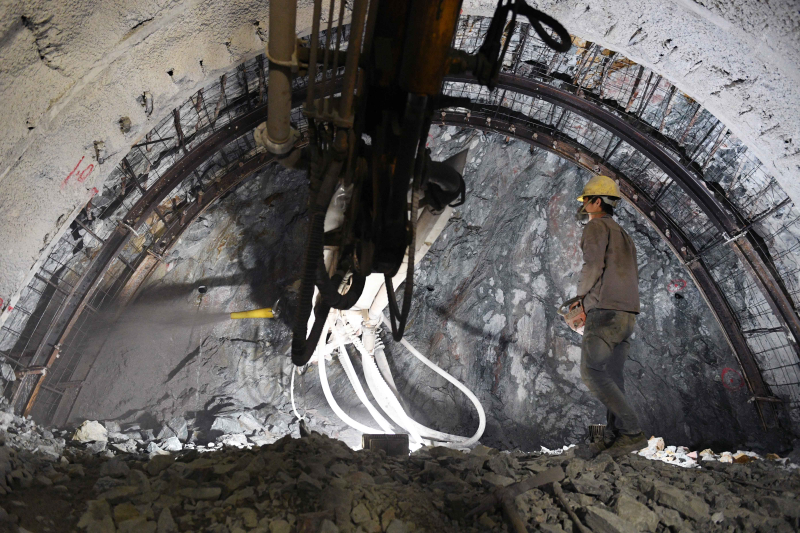What is Tunnel Support? Tunnel support refers to structural systems and engineering measures designed to stabilize underground excavations during and after construction. It ensures the safety of tunnels by preventing collapses, controlling ground deformation, and maintaining long-term structural integrity. Common tunnel support methods include steel arches, shotcrete, rock bolts, and precast concrete segments.

For example, in mining and civil engineering, tunnel support systems like bolt-shotcrete combinations are widely used to reinforce surrounding rock and mitigate risks such as roof separation (a critical safety hazard). Advanced machinery, such as tunnel support machines, can automatically install spiral-wound profiled ribbons to form continuous support tubes, enhancing efficiency in modern tunneling projects.
The Role and Functions of Tunnel Support
(1) Stabilizing Surrounding Rock
Tunnel support interacts with the surrounding rock to redistribute stress and prevent instability. Numerical modeling (e.g., 3D elastic-plastic finite element analysis) helps optimize parameters like bolt spacing and shotcrete thickness for different geological conditions. For instance, in the Jinchuan mining area, tailored support techniques were developed to address weak rock masses, demonstrating the adaptability of tunnel support systems.
(2) Preventing Collapses and Safety Hazards
Unsupported tunnels face risks like roof falls and sidewall buckling. Steel tunnel supports and reinforced concrete linings are critical in high-stress environments. Monitoring systems track parameters such as deformation and stress to ensure support effectiveness. A case study in the Luojiang Tunnel highlighted how smooth blasting combined with timely support installation reduced collapse risks.
(3) Adapting to Complex Geological Conditions
Tunnel support must address challenges like soft soil, high groundwater pressure, and seismic activity. For example:
- Bifurcated tunnels: Specialized support designs balance intersecting excavation stresses.
- Subsea or urban tunnels: Waterproofing and ground reinforcement are prioritized to avoid leaks or subsidence.
(4) Enabling Long-Term Durability
Durable materials like corrosion-resistant steel and fiber-reinforced shotcrete extend tunnel lifespans. The CJ bearing system, used in ceiling supports, exemplifies how high-strength components enhance structural resilience.
Tunnel support is indispensable in modern underground engineering, combining advanced materials, mechanical systems, and geotechnical expertise to ensure safety and functionality. From traditional rock bolting to automated support machines, its evolution continues to address increasingly complex construction challenges.




